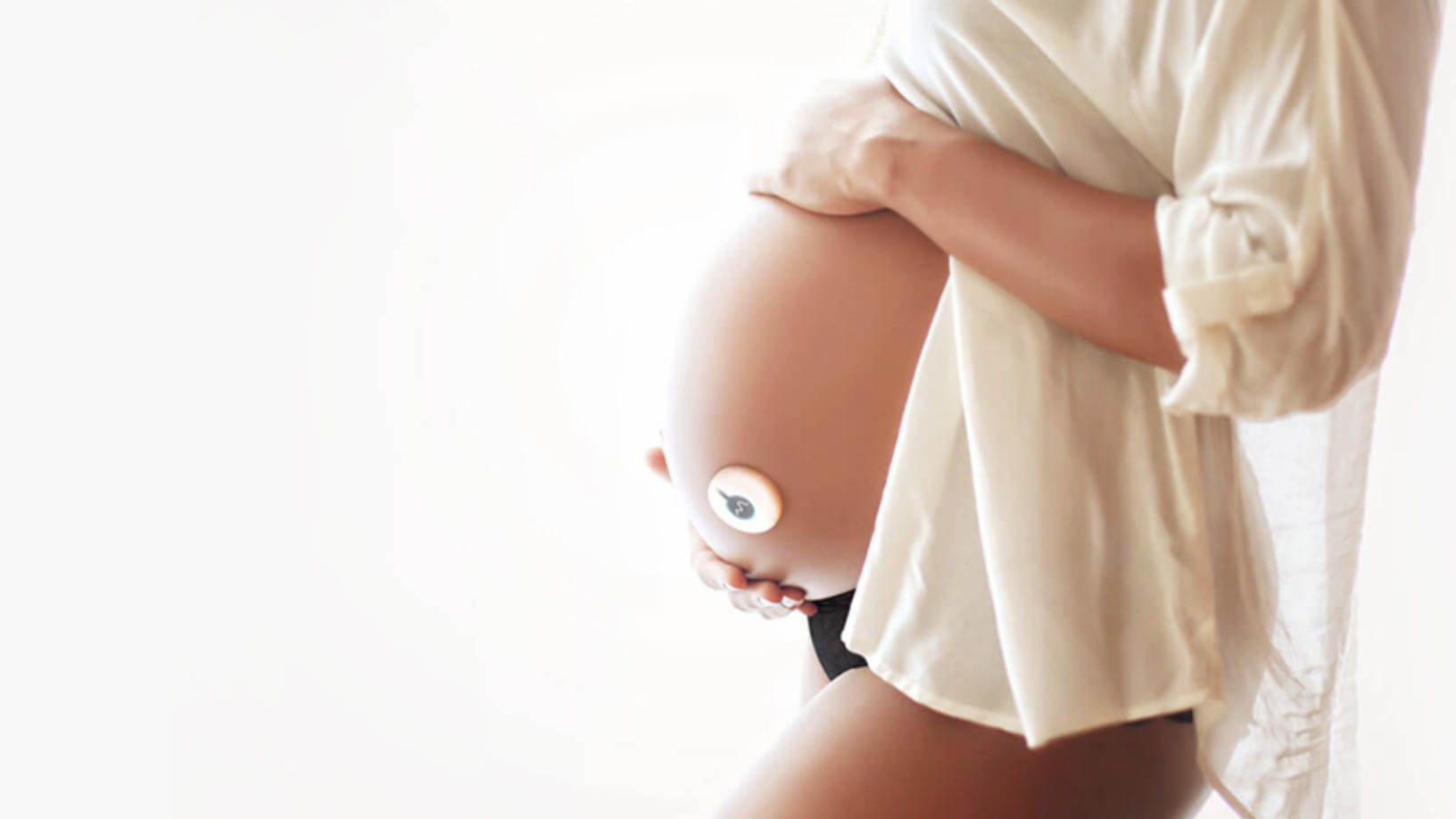In 2014, Ma Jiliang had heartbreaking news that a close friend had lost her baby just two days before she was due to give birth because of over anxiety. “It shattered a family’s hopes and dreams which had been building up for months before the expected birth," said Ma, CEO and founder of Modoo, “I myself still feel sad just thinking about it.”
The then 25-year-old industrial and systems engineering graduate from the University of Wisconsin-Madison was working at AI wearables leader Mobvoi in Beijing when he got the news. He immediately began searching for products in the market that could help to detect similar medical incidents in the future. There were none.
Back then, the closest option was a Doppler fetal monitor that enables users to hear the heartbeats of an unborn baby during pregnancy. However, it couldn’t provide more information, other than to check that the fetus was alive at that specific time. The home-use of such devices, without the supervision of medical professionals, was discouraged by the US FDA because of possible harmful ultrasound effects on the fetus.
Ma and his research team opted for a passive monitoring approach which is safer than Doppler’s ultrasound. The team got their tech breakthrough, Ma said, inspired by a conventional method widely adopted by gynecologists in China. In 2015, over RMB 36m were raised in seed and Series A funding rounds and Modoo Pro was launched. The startup also collaborated with Shanghai First Maternity and Infant Hospital, one of the top maternity hospitals in China, to develop the product, collect data and run clinical trials.
Modoo Pro is reputed to be the world’s smallest fetal heart monitor. The company currently sells the monitors through multiple e-commerce platforms in China, with total sales reaching 60,000 in 2019. Through data collected, the company reckoned that the lives of 95 fetuses were saved thanks to its home-monitoring device. Modoo will continue to reach out to more expectant mothers and their families in China, and plans to expand overseas with adapted versions of the Modoo products.
Biometric algorithms
A senior doctor’s comment caught the attention of the Modoo research team. "He said that before the prevalent use of Doppler fetal monitors, they used stethoscopes to listen for fetal heartbeats and movements. Experienced doctors could discern the fetal sounds from other noises like movements within the mother’s digestive system,” Ma recalled.
The information gathered from the medics’ healthcare experiences is ideal for developing data-driven programs like algorithms. Instead of trying to enhance the sound of a baby’s heartbeat by sending ultrasonic waves to the fetus in the womb, Modoo chose to build a modern stethoscope using biometric algorithms.
The passive but smart monitoring device collects all the sounds coming from a pregnant woman’s abdominal cavity and sends them to Modoo for processing. The company devised algorithms used to identify and collate the different sounds of the baby’s heartbeats and movements.
Modoo estimates that its margin of error could be as low as 1BPM (beats per minute), compared with the maximum of 2 BPM allowed by China’s regulators. The small wearable Modoo Pro device weighs only 15 g. The cordless disc, 4 cm in diameter and 5 mm thick, can easily be attached to the abdomen of the expectant mom.
The device is connected to the Modoo app on the smartphone via Bluetooth. The data collected is sent to Modoo for processing and a report is automatically generated and sent back to the user at the end of the 20-minute session. Users can also use the app to send the reports to a licensed doctor and pay a fee for the consultation if they have any questions.
Helping 90,000 moms
In China, pregnancies are usually checked once a week at a hospital. From week 28 onward, the pregnant women are asked by the doctors to count fetal movements three times a day. However, many of them can’t do it accurately. About 70% of the hospital visits were perceived to be counter-productive because the pregnant moms thought they were not counting the fetal movements correctly. The visits just created more stress for the women.
“Now with Modoo Pro, pregnancy can be a beautiful stage of life. We want to free expectant moms from any fear and anxiety,” Ma said.
Modoo Pro’s price-tag of RMB 1,399 is significantly higher than the baby Dopplers’ price range of RMB 100–400. Despite the higher price, Modoo has managed to sell a total of over 60,000 units by 2019 with monthly sales growth expected to continue at 15%. To make it more affordable to reach out to more potential users, Modoo launched its rental services in February 2019. Users can pay RMB 399 to rent the device for the first month and a daily rate of RMB 15 for the second month onward. Over 15,000 users were renting the device from Modoo by December 2019.
According to the startup, there was hardly any competition during the first two years after Modoo Pro was launched. But since then, the lucrative prenatal care market has attracted new players like Singapore-based Kaishi and Hungary’s Fetaphon. “Fair competition helps to develop a healthy market,” Ma said. “Modoo Pro’s accuracy, sales record and great user feedback give me much confidence.”
Modoo plans to roll out more new products for pregnant moms and children aged 1–3. “For example, many moms would buy short-term insurance for their kids. It would be a natural move for us to work with insurance companies in the future since we share the same target customers, and Modoo has collected a lot of data on babies’ health,” said Ma.
















